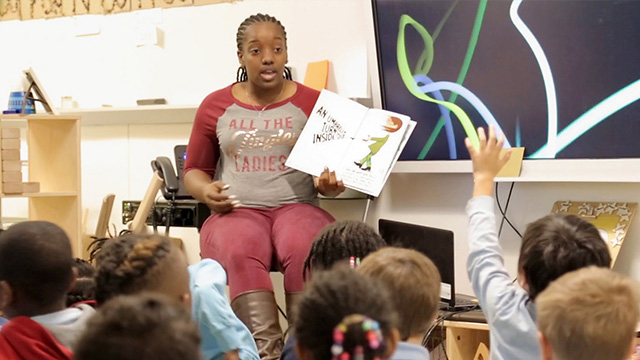Prepared For
U.S. Department of Education, Institute of Education Sciences
In this study of more than 500 schools, 60 districts, and all 50 states and the District of Columbia, Mathematica is conducting an implementation and impact analysis of Race To the Top and School Improvement Grants, two programs that aim to foster systematic school reform.
Reforming the way our nation's schools prepare students for careers and college is at the top of the policy agenda. The American Recovery and Reinvestment Act of 2009 (ARRA) contained substantial funding for systemic education reform. In 2010, eleven states and the District of Columbia received $4.35 billion in Race to the Top (RTT) grants based both on their education reform plans and their past success in creating conditions for reform. States also received $3 billion in additional ARRA funding for School Improvement Grants (SIG), which support implementation of school turnaround models in the lowest-performing schools. In 2012, nine states received $520 million in Race to the Top—Early Learning Challenge (RTT-ELC) grants to develop and implement systems that rate early childhood education programs on their quality and help them improve. These systems are known as tiered quality rating and improvement systems (TQRIS).
Reforming the way our nation's schools prepare students for careers and college is at the top of the policy agenda. The American Recovery and Reinvestment Act of 2009 (ARRA) contained substantial funding for systemic education reform. In 2010, eleven states and the District of Columbia received $4.35 billion in Race to the Top (RTT) grants based both on their education reform plans and their past success in creating conditions for reform. States also received $3 billion in additional ARRA funding for School Improvement Grants (SIG), which support implementation of school turnaround models in the lowest-performing schools. In 2012, nine states received $520 million in Race to the Top—Early Learning Challenge (RTT-ELC) grants to develop and implement systems that rate early childhood education programs on their quality and help them improve. These systems are known as tiered quality rating and improvement systems (TQRIS).
Mathematica is:
- Studying the implementation of RTT and SIG
- Investigating the relationship between receipt of RTT funds and student outcomes
- Analyzing the impact of SIG-funded school turnaround models on student outcomes
- Investigating the relationship between school turnaround models (and strategies within those models) and outcomes in low-performing schools
- Studying the implementation of TQRIS in states that received RTT-ELC funds
Interviews with state and district administrators and web surveys of schools informed the implementation analysis of RTT and SIG and assisted with the interpretation of the results from the impact analysis. Data collection for the impact analysis focused on gathering existing state- and student-level data. More than 500 schools within roughly 60 districts were included in the school surveys and analysis of the impacts of school turnaround models. All 50 states and the District of Columbia were included in the state interviews and analysis of the effects of RTT. Interviews with state TQRIS administrators and researchers who studied states’ TQRIS will inform the implementation analysis of RTT-ELC. Data collection for this analysis will also focus on gathering existing TQRIS data from nine states.
Explore the findings in an interactive quiz.
Subcontractors are the American Institutes for Research and Social Policy Research Associates.
Read More






